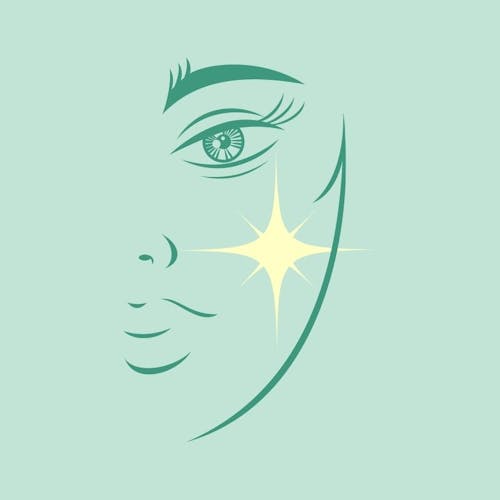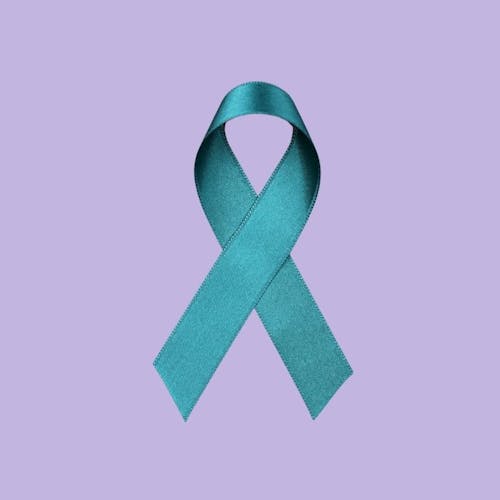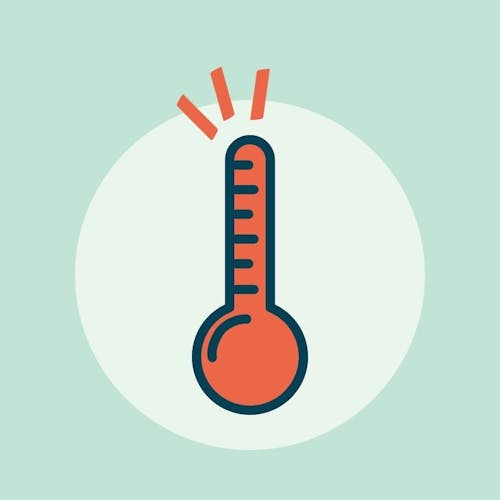This website uses cookies to enhance the user experience. By using Yoppie you are agreeing to our use of cookies.
Sweating After Eating? Here's What It Could Be
Written by Yoppie
25 Oct 2021
What could it be?
What is PCOS?
What are the symptoms?
How would I be diagnosed with PCOS?
Should I see a doctor?
If you find yourself blotting away beads of sweat after eating a big meal, you may be wondering what the heck is happening to you. Understandable if you’ve just run a marathon, not so much if you’re sitting at your kitchen table. We’re taking a look at what might be causing this uncomfortable sweaty issue. Let’s take a look…
What could it be?
If you are regularly sweating while eating, or after eating, there are a few things that could be causing this. The most likely culprits are:
- Head or neck surgery: If you have had surgery on your head or neck in the past, particularly if this was to remove a parotid gland (the largest of the salivary glands), you may have experienced trauma to the tissues around this area, which can result in excessive sweating.
- Gustatory sweating or Frey’s syndrome: These two are similar, and affect the parotid gland. Many people sweat during or after eating spicy food, but people with one of these two conditions may find they sweat during or after eating anything at all. Sweat can also be brought on by foods that cause a person to salivate more, and can even be triggered by just the thought of food. Uh oh…
- Idiopathic hyperhidrosis: If your doctor cannot identify the root cause of your untimely sweating, they may simply refer to it as idiopathic hyperhidrosis. Even if they are unable to find the underlying condition they can usually treat the sweating, so don’t worry if this is the case for you.
- Polycystic ovary syndrome: It may seem totally unconnected, but excessive sweating after eating can be a sign of PCOS. Read on to find out more…
What is PCOS?
PCOS stands for polycystic ovary syndrome, and it’s a pretty common condition which affects the function of the ovaries. Most people with PCOS don’t actually know they have it - in fact one study found that up to 70% of people with the condition hadn’t been diagnosed.
Despite the name, polycystic ovaries don’t contain cysts, just underdeveloped sacs of up to 8mm in size where eggs develop but are rarely able to be released. Without ovulation, hormone levels may be altered, causing the ovaries to produce less progesterone and more of the hormone androgen.
What are the symptoms?
The most common PCOS symptoms tend to be irregular periods, heavy bleeding, excessive hair growth or hair loss, acne, weight gain, and in some cases fertility issues. Some people might experience only one of these symptoms, while others might have multiple.
Hyperhidrosis (or excessive sweating) after a non-cardio activity like eating your dinner, can actually be a rare sign of PCOS, and can sometimes be the one that alerts people to the condition. If you regularly notice excess sweating during or after a meal, it may be worth considering the other symptoms of PCOS, and if you have any concerns you should speak to your GP to start the necessary investigations.
How would I be diagnosed with PCOS?
Unfortunately there are no tests to diagnose PCOS, but your doctor may discuss your medical history and symptoms. If they suspect PCOS, they may perform a pelvic exam to check for any growths or abnormalities, do blood tests to gauge hormone levels, or an ultrasound to look at the ovaries.
I’m embarrassed by excessive sweating. What can I do?
Sweating is never fun, but least of all when you are out socialising and end up drenched, uncomfortable and running for the bathroom to “freshen up”. If you suffer from hyperhidrosis, whatever the reason, you may wish to stick to a strong antiperspirant to minimise the amount of sweat, wear layers so you can cover any sweat patches that might occur, and bring a tissue or small handkerchief with you to blot away any shine.
It can be difficult to discuss what feels like an embarrassing problem, but most people will be understanding if you let them know your situation, so when this happens, try not to be embarrassed or let it stop you from living life.
Should I see a doctor?
If you suspect you may have one of the conditions listed above, or your excessive sweating is causing you distress and anxiety about going out, eating, or taking part in other daily activities, don’t ignore it. Speak to your GP so they can help discover the root cause and banish those persistent sweat beads.
Do you have PCOS and notice you sweat after eating? We’d love to know your experience with this and any tips you have for managing it. You can get in touch on our Instagram at @itsyoppie to ask any questions. Don't forget that our personalised menstrual cycle care box covers everything from organic tampons to hydrating face masks (and plenty more!) delivered regularly through your letterbox - so that's one less thing to worry about each month.
Section jump
Back to top
Subscribe To Our Newsletter
YOPPIE





© 2026 Yoppie is a registered trademark of Phlo Technologies Ltd.
Yoppie's supplements are not a substitute for a varied diet and healthy lifestyle and are not intended to diagnose, treat, or cure any disease. If you are pregnant, breastfeeding, have a medical condition or are under medical supervision, please consult with your doctor before taking any of our products.






